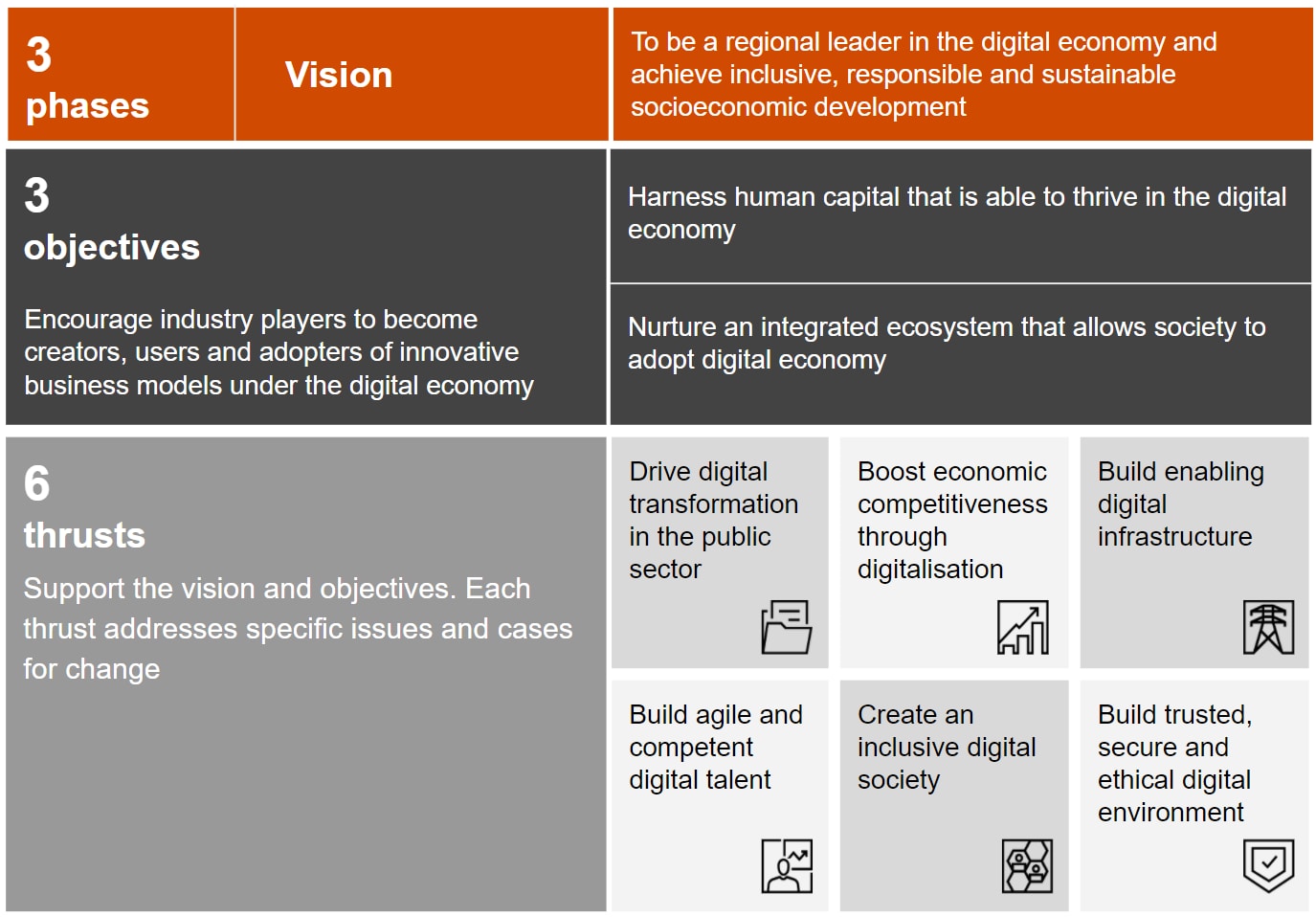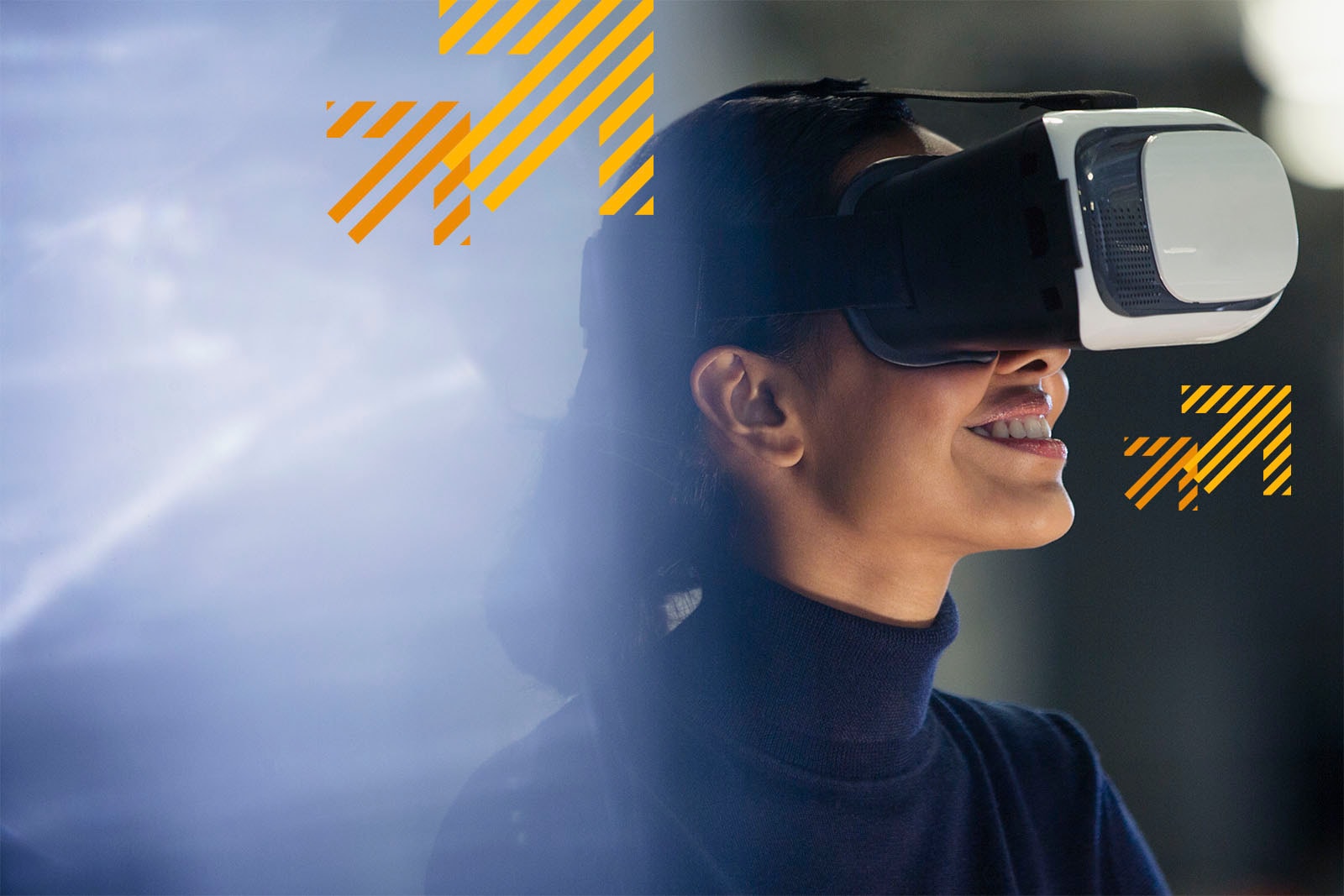Staying relevant to stay in business
Accelerating Malaysia’s digital economy with technology
The ‘Malaysia Digital Economy Blueprint’
Where do businesses come in?
Key benefits of adopting technology
- Opportunities for growth and increased resilience in economic uncertainties
- Improved efficiency and productivity
- Improved social and environmental performance
4 key areas businesses should look into for successful technology implementation
Our consumption and interaction with established and emerging technologies like artificial intelligence (AI), the Internet of Things (IoT), cloud computing, blockchain, and robotic process automation continue to grow at an increasing pace, changing the ways in which we experience the world.
This experience extends to the business landscape. To stay relevant, it is therefore necessary for businesses to embed technology into their DNA, aligning the value they can create with today’s continuously changing expectations.
Digitalising the nation calls for close collaboration between the private and public sectors
On 19 February, the government introduced MyDIGITAL, a national initiative that symbolises the aspirations of the Government to successfully transform Malaysia into a digitally-driven, high income nation and a regional leader in digital economy. To realise this aspiration, the government launched the Malaysia Digital Economy Blueprint to accelerate the country’s digital economy, recognising that while technology adoption in the country has steadily increased over the years, the pace could be faster and more inclusive. The Blueprint aims to achieve this by providing a framework to strengthen the building blocks needed for digitalisation, which will enable the adoption of more advanced technologies in Malaysia.
While the government can steer the strategies and initiatives to digitalise the nation, they will need the private sector’s support to lead the charge in certain areas, leveraging upon their strengths. We believe that a collaboration such as this will foster a sense of shared responsibility and accountability, which will be favourable to implementation success.
Malaysia Digital Economy Blueprint: A snapshot

Source: Malaysia Digital Economy Blueprint, Economic Planning Unit, 2021
What’s in it for me? The benefits of saying ‘yes’ to technology

Opportunity for growth and increased resilience in economic uncertainties
Consumer behaviours have gradually been evolving, the speed of which has accelerated because of COVID-19. Businesses that are attuned to these changes will recognise that meeting new demands will only be possible with technology - the catalyst for innovation and business growth. Technology implementation can also provide protection against economic downturns, as they can help companies pivot more quickly.
Greater efficiency, improved productivity
The association between technology and benefits like increased productivity and efficiency is gradually strengthening, and with reason. With technology, manual, tedious and repetitive tasks can be automated, for instance, saving employees time. This would allow employees to steer their focus towards higher-value work, like analysing data generated from digital tools, which can then be translated into actionable insights.
A better grasp of environmental performance
There’s no overnight solution to running a business responsibly, but businesses can start by investing in the proper technologies to improve environmental performance. Leveraging these technologies to address social and environmental issues would be crucial to boosting the country’s global competitiveness and attractiveness in terms of doing business, especially now, given that sustainability is progressively securing its place as a core business focus worldwide.
Key areas to look into for successful technology implementation
Transformation is more than just investing in technology. To get the most out of the tools and systems, and to promote the practice of using technology responsibly, companies need to:
(1) Re-examine their business models
Companies must adapt as traditional business models are disrupted.
(2) Upskill their workforce
Digital and human skills are needed for employees to thrive in their roles.
(3) Safeguard data privacy and enhance cyber security measures
Tech vulnerabilities can expose companies to risk and must be addressed to build trust.
(4) Apply technology in crisis management and response
It’s hard to predict when a crisis will strike, but technology can help minimise its impact.
















